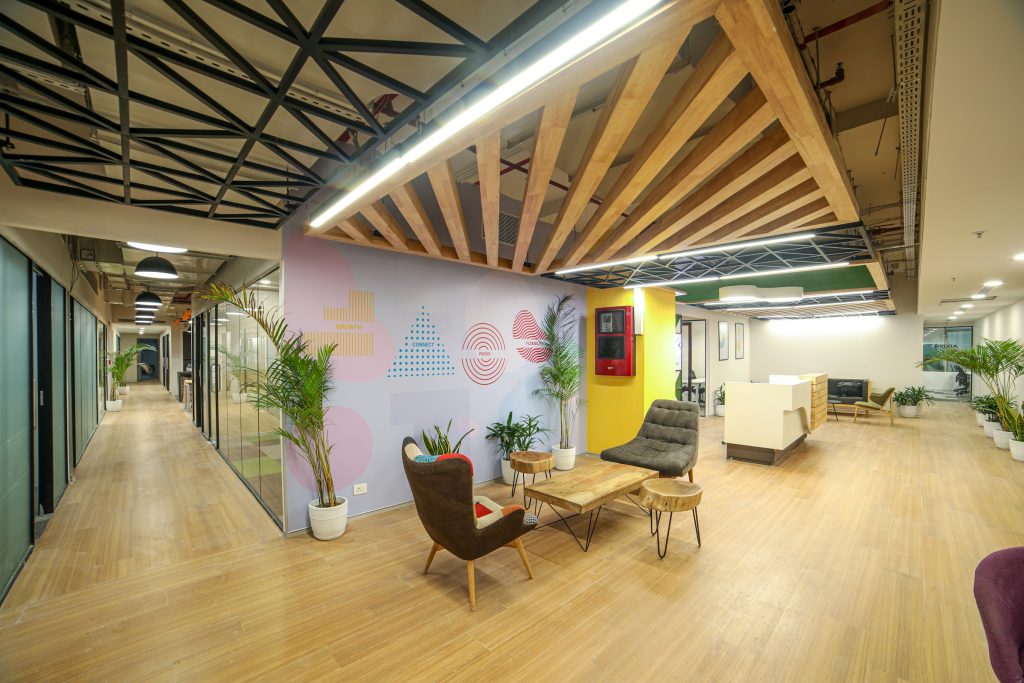The modern workforce is rapidly evolving, with hybrid roles becoming increasingly prevalent across industries. Hybrid roles, which blend responsibilities from different fields or require a mix of technical and soft skills, pose unique challenges for recruiters. Traditional interview methods often fall short in accurately assessing candidates for these complex positions. However, AI interviews are emerging as a powerful tool to help organizations hire for hybrid roles more effectively.
This blog explores how AI interviews can revolutionize the hiring process for hybrid roles, ensuring that the right candidates are selected to drive business success.
Understanding the Complexity of Hybrid Roles
Hybrid roles are characterized by their multifaceted nature, requiring a diverse skill set that spans various domains. For example, a hybrid role might combine elements of marketing and data analysis, or project management and software development. These roles demand candidates who can seamlessly transition between different tasks, adapt to changing priorities, and possess both technical expertise and interpersonal skills.
Recruiting for hybrid roles is challenging for several reasons:
- Diverse Skill Requirements: Hybrid roles often require a unique combination of skills that are not typically found in a single candidate. Traditional resumes may not fully capture a candidate’s ability to meet these diverse requirements.
- Assessing Soft Skills: Hybrid roles frequently demand strong soft skills, such as communication, problem-solving, and adaptability, which can be difficult to evaluate through standard interview processes.
- Cultural Fit: Candidates for hybrid roles must not only possess the right skills but also fit within the company culture and collaborate effectively with teams across different functions.
- Bias in Hiring: Traditional interviews can be influenced by unconscious biases, leading to hiring decisions that may not fully reflect a candidate’s potential to succeed in a hybrid role.
The Role of AI in Hiring for Hybrid Roles
AI interviews offer a sophisticated solution to the challenges of recruiting for hybrid roles. By leveraging advanced algorithms, machine learning, and natural language processing, AI interviews provide a more accurate and comprehensive assessment of candidates. Here’s how AI can transform the hiring process for hybrid roles:
- Comprehensive Skill Assessment:
AI interviews are designed to evaluate a candidate’s skills across multiple domains. By analyzing responses to tailored questions, AI can assess both technical abilities and soft skills. For example, a candidate applying for a hybrid marketing-data analyst role can be evaluated on their marketing strategy knowledge, data interpretation skills, and ability to communicate complex information clearly.
AI can also simulate real-world scenarios that hybrid roles may encounter, testing a candidate’s ability to switch between tasks and manage competing priorities. This comprehensive approach ensures that candidates are assessed on all the skills required for the role, not just those highlighted on their resume.
- Objective Evaluation:
One of the most significant advantages of AI interviews is their ability to eliminate bias. Traditional interviews can be influenced by factors such as a candidate’s appearance, accent, or even the mood of the interviewer. AI interviews, on the other hand, focus solely on the content of the candidate’s responses.
By using standardized criteria to evaluate all candidates, AI ensures that each applicant is judged fairly. This objectivity is particularly important for hybrid roles, where the right candidate may come from a non-traditional background or possess a unique combination of skills.
- Predicting Success in Hybrid Roles:
AI interviews can analyze vast amounts of data to predict a candidate’s likelihood of success in a hybrid role. By comparing a candidate’s responses to those of high-performing employees in similar roles, AI can identify key traits and skills that correlate with success.
For instance, if previous successful hybrid role holders demonstrated strong problem-solving abilities and adaptability in their AI interviews, the system can flag candidates with similar profiles. This predictive capability helps recruiters make more informed hiring decisions, reducing the risk of selecting candidates who may not thrive in a hybrid environment.
- Enhanced Candidate Experience:
AI interviews can be conducted asynchronously, allowing candidates to complete the interview at their convenience. This flexibility is particularly appealing for candidates applying for hybrid roles, who may already be managing diverse responsibilities.
Moreover, AI interviews can provide immediate feedback, giving candidates insight into their performance and areas for improvement. This transparency enhances the candidate experience and reflects positively on the employer brand.
- Scalability and Efficiency:
Recruiting for hybrid roles can be time-consuming, especially when dealing with a high volume of applications. AI interviews streamline the process by automating initial screenings, allowing recruiters to focus on the most qualified candidates.
AI can quickly sift through large numbers of applications, identifying those with the right skill sets and potential. This efficiency is crucial for organizations looking to fill hybrid roles quickly and effectively, without sacrificing the quality of their hires.
- Cultural Fit and Soft Skills Analysis:
Beyond technical skills, hybrid roles often require candidates to work across departments and collaborate with diverse teams. AI interviews can assess a candidate’s cultural fit by analyzing their communication style, teamwork capabilities, and adaptability.
By evaluating responses for indicators of emotional intelligence, collaboration, and cultural alignment, AI helps ensure that candidates are not only capable but also likely to thrive within the company’s unique environment.
Implementing AI Interviews in the Hiring Process
To fully leverage the benefits of AI interviews for hybrid roles, organizations should consider the following steps:
- Define the Role Requirements:
Clearly outline the skills, competencies, and attributes required for the hybrid role. This will guide the AI interview process, ensuring that the questions and evaluation criteria align with the specific demands of the position.
- Choose the Right AI Platform:
Select an AI interview platform that offers advanced features such as natural language processing, sentiment analysis, and predictive analytics. Ensure that the platform can be customized to suit the unique needs of hybrid roles.
- Train Your Recruitment Team:
Provide training for recruiters on how to interpret AI-generated insights and incorporate them into the overall hiring decision. This will help bridge the gap between AI assessments and human judgment.
- Continuously Monitor and Refine:
Regularly review the outcomes of AI interviews to ensure they are delivering the desired results. Collect feedback from candidates and hiring managers to identify areas for improvement and refine the AI interview process accordingly.
Conclusion
Hiring for hybrid roles is a complex task that requires a nuanced approach to assessing candidates’ diverse skill sets. AI interviews offer a powerful solution by providing comprehensive, objective, and scalable assessments that align with the unique demands of hybrid roles. By integrating AI into the recruitment process, organizations can more effectively identify candidates who possess the right combination of technical and soft skills, ensuring that they are well-equipped to thrive in these multifaceted positions.
As hybrid roles continue to proliferate across industries, embracing AI interviews will become increasingly important for organizations looking to stay competitive and attract top talent. By leveraging AI, companies can not only streamline their hiring processes but also build stronger, more versatile teams capable of driving innovation and growth in an ever-changing business landscape.
Interviewer.AI is a technology platform purposely built to support Recruiters and HR teams in finding top talent for their companies. We also work with universities to help them with admissions and coaching, helping them use technology to solve for talent and training. Our mission is to make hiring equitable, explainable, and efficient. to screen in advance and shortlist the candidates that meet the criteria set.
Learn more about how Interviewer.AI can help your business. Schedule a demo today!
Srividya Gopani is the Co-founder, Chief Marketing and Product Officer at Interviewer.AI. She enjoys working on technology which is central to this role as the driver for marketing and product for Interviewer.AI.







